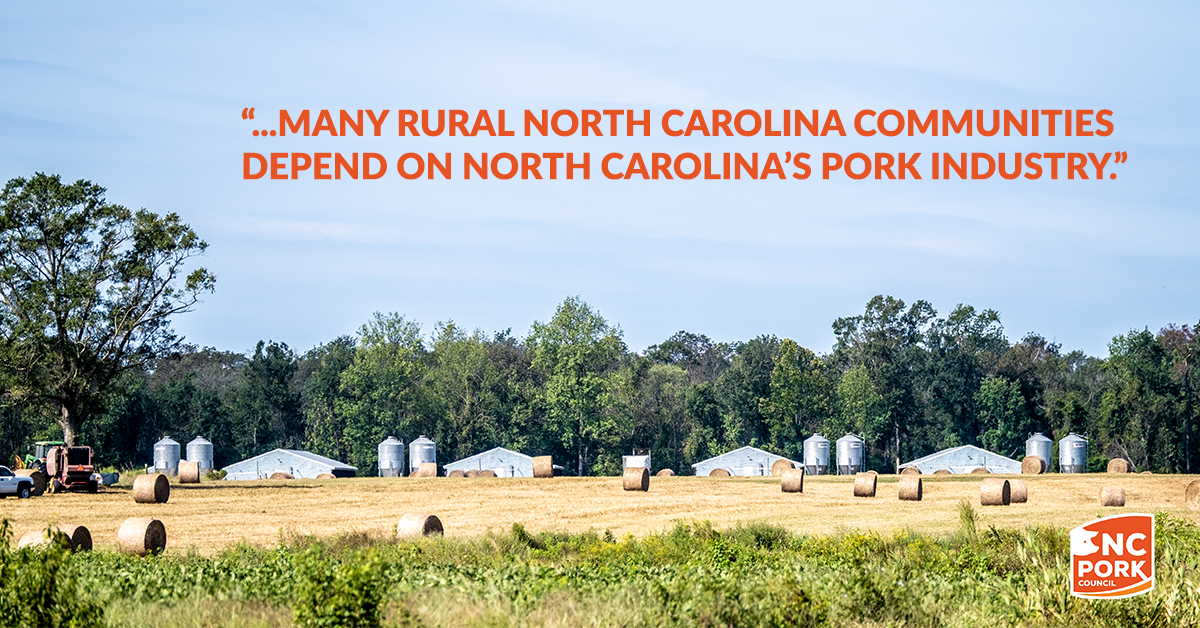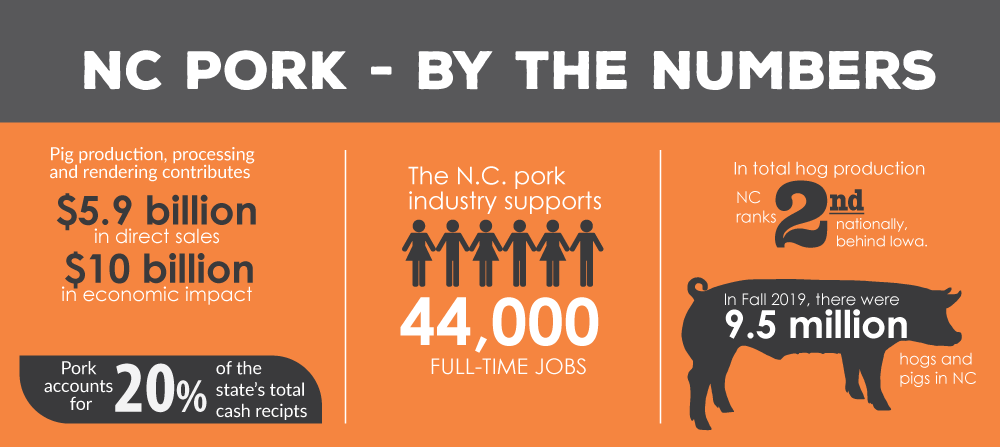
This family pig farm in Duplin County is one of hundreds that are drivers of the North Carolina economy, particularly in rural areas.
The news has been filled lately with more stories about the growing divide between North Carolina’s urban and rural communities. While larger cities are experiencing a wave of growth, many rural communities are struggling with declining populations and the continued loss of jobs.
Without the valuable contributions of our state’s agricultural industry, that disparity would be much greater.
A new economic impact report commissioned by the North Carolina Pork Council shines a light on the critically important role that our state’s pork industry plays in supporting our state’s economy. Nowhere is that more evident than in the small, rural communities in Eastern North Carolina that are home to hundreds of family farms that provide the bedrock foundation of our industry.
“A grand challenge facing North Carolina is that rural economies are typically weaker and slower growing,” says Dr. Kelly Zering, a professor at NC State’s Department of Agriculture and Resource Economics, who conducted the economic impact study. “Any loss of employment, income and tax base may create a downward spiral as tax revenue shrinks, government services are reduced, people move away, and the customer base for local businesses declines.”
Dr. Zering’s research finds that the pork production and pork processing industries support 43,611 jobs in North Carolina and contribute $9.5 billion in sales, plus an additional $3.5 billion in wages, salaries, benefits, taxes, and other value added services.
Those are big numbers, but they are possible only through the collective activity of many people. The economic numbers do demonstrate, in stark terms, how and why so many rural North Carolina communities depend on North Carolina’s pork industry.
At the heart of our industry are hundreds upon hundreds of family farmers who work tirelessly to raise pigs, and do so as outstanding stewards of the environment, with careful animal husbandry and in working to ensure a safe food supply.
But the impact spreads far and wide from there. To the grain buyers who work at the feed mills. To the equipment dealers who sell farm equipment. To the insurance and financial firms that specialize in protecting and assisting farmers.
There are thousands more who work at pork processing facilities in towns like Wilson, Tar Heel, Clinton, Kinston and beyond. These workers produce the bacon, pork chops and hams found in our grocery stores and restaurants.
And there are other companies here that quietly rely on North Carolina’s pork industry, including HI-CHEW, the wildly popular chewy candy from Japan that’s becoming a fast favorite here. The candy’s maker, Morinaga America, opened a factory in Orange County several years ago, in part due to the proximity of one of its key ingredients — gelatin made from pork by-products.
Dr. Zering’s report specifically highlights four rural counties where the pork industry has a most substantial economic impact. In Bladen, Sampson, Duplin and Wayne counties alone, our industry supports nearly 19,000 jobs.
Imagine how the urban-rural divide would widen further without the pork industry’s contributions.
The importance of those jobs — and the positive economic impact on rural communities with taxes and other related activity — cannot be understated. In Bladen County, for example, the pork industry accounts for nearly half of the county’s total employment. The impact in Sampson County (23% of all jobs) and Duplin County (15% of all jobs) is equally significant.
Sadly, there are some organizations, with agendas that are against agriculture, that continue to attack the pig farmers who serve as the foundation of North Carolina’s pork industry. If they are successful, our industry and the rural communities it supports, would suffer greatly.
— Andy Curliss, CEO

